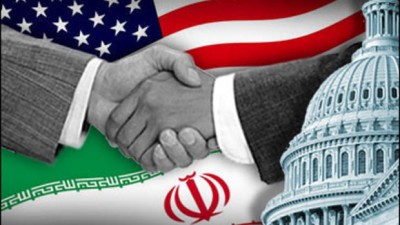Iran Nuclear Deal: The Real Battle Begins

It’s not a done deal yet. It has miles to go with stiff congressional and Israeli opposition.
A previous article discussed Netanyahu and AIPAC vowing in less than so many words to undermine what was achieved. Expect them going all-out by pressuring for congressional rejection and scare-mongering Americans to think Iran’s nonexistent road to the bomb is facilitated.
Two agreements were reached Tuesday. The Joint Comprehensive Plan of Action (JCPOA) begins a lengthy process likely continuing through yearend or longer. Iran must satisfy P5+1 countries and IAEA requirements before implementation of relief in return – including nuclear related sanctions lifted and unblocking its frozen assets.
At the same time, automatic US and Security Council sanctions “snap-back” is mandated if four of the seven countries involved in talks say Iran breached agreement terms – a potentially deal-wrecking setup letting Washington pressure Britain, France and Germany to go along with US officials claiming Tehran reneged on its agreement (almost certainly unlikely).
Why would Iran do anything to undermine what took years to achieve? If at any time, Washington cries foul, for sure it’s evidence of planned intent based on fabricated claims.
It’s common US double-dealing – pledging one thing, doing another, blaming others for its transgressions and getting away with it.
The second agreement lets the US-controlled IAEA decide if Iran satisfies nonexistent concerns about its nuclear program having no “possible military dimensions (PMD).”
Earlier false accusations can resurface – based on forged documents and other bogus materials. A decade earlier, a mysterious laptop contained falsified information – alleging a so-called “green salt project” to provide clandestine uranium, high-explosives testing, and reengineering a Shahab-3 missile to carry a nuclear warhead.
At the time, former IAEA inspector/later department director Robert Kelly called the documents involved forged, saying:
“There is nothing to tell that (they’re) real. My sense when I went through (them) was that there was possibly a lot of stuff in there that was genuine, (but) it was a kind of junk.”
High quality material amounted to “two or three pages (unrelated) to anything else in the package. It was on a different topic, and you just wondered” whether fake evidence was planted.
He recalled 1993 and 1994 when the IAEA got “very complex forgeries” of a nonexistent Iraq nuclear weapons program. “(W)hen we dug into them they were clearly forgeries,” he explained.
After 36 years, unrelenting US anti-Iranian hostility continues. Agreed on terms with Tehran belies Washington’s bottom line intention – regime change. Nothing consummated Tuesday changes things.
Obama straightaway began selling the deal to skeptics – ludicrously saying “we have stopped the spread of nuclear weapons in this region…(T)he international community will be able to verify that the Islamic Republic of Iran will no develop a nuclear weapon” it has no intention of producing and never did.
Nor will the deal lessen chances for greater regional war. As long as US policy calls for replacing all independent governments with regimes it controls, nations like Iran are threatened – especially with bipartisan lunatics infesting Washington.
A Final Comment
Congress has 60 days to review what was agreed on in Vienna. It’s expected to vote up or down in early September. Obama signed legislation surrendering his executive authority to lawmakers – a potential deal-breaker.
Republicans across the board expressed opposition. House Speaker John Boehner (R. OH) and Senate Majority Leader Mitch McConnell (R. KY) said it’ll “be a very hard sell in Congress.”
Obama needs strong Democrat support to keep the deal from unraveling before implemented. Whether possible remains to be seen – especially with intense Israeli and AIPAC pressure already begun.
Stephen Lendman lives in Chicago. He can be reached at [email protected]. His new book as editor and contributor is titled “Flashpoint in Ukraine: US Drive for Hegemony Risks WW III.” http://www.claritypress.com/LendmanIII.html Visit his blog site at sjlendman.blogspot.com. Listen to cutting-edge discussions with distinguished guests on the Progressive Radio News Hour on the Progressive Radio Network. It airs three times weekly: live on Sundays at 1PM Central time plus two prerecorded archived programs.

